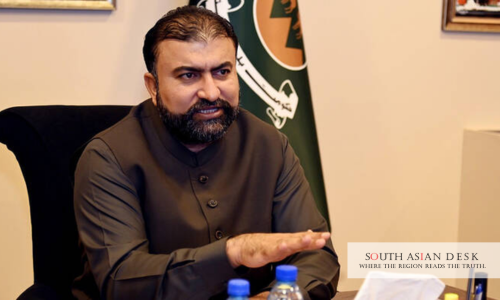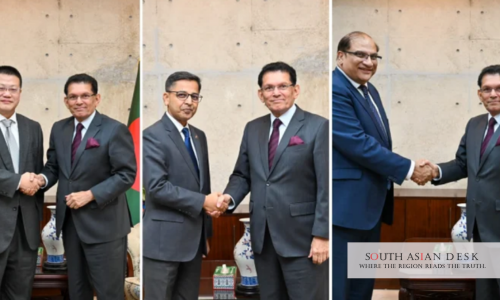Balochistan Chief Minister Sarfraz Bugti claim on Thursday, September 25, 2025, during a press conference in Islamabad that terrorists receive state patronage in Afghanistan, enabling Afghans attack involvement in assaults on Pakistan, and called on the Taliban to honour the Doha Agreement. This Balochistan CM claim highlights intelligence operations uncovering Afghan nationals among the slain militants.
The claim regarding Afghans attack involvement risks further straining Pakistan-Afghanistan relations, a volatile border dynamic that affects trade, refugee flows, and counter-terrorism efforts across South Asia. With Balochistan serving as a gateway to Central Asia, such accusations could disrupt regional stability, exacerbate humanitarian challenges for millions of displaced Afghans, and invite broader geopolitical meddling from powers like India and China invested in the area’s mineral-rich corridors.
Balochistan CM Claim Details State Patronage Allegations
In his address, Bugti detailed how militants exploit Afghan territory for safe havens and training camps, supported by state mechanisms in Kabul. “Terrorists were provided safe havens and places to run training camps in Afghanistan,” he stated, according to reports from the event. This Balochistan CM claim comes amid a surge in violence in the province, where security forces have intensified operations against groups like the Balochistan Liberation Army (BLA) and Tehrik-i-Taliban Pakistan (TTP).
Bugti linked the issue to recent intelligence breakthroughs. On Wednesday, September 24, 2025, forces conducted an operation in Chagai district, neutralising two terrorists—one identified as a lawyer connected to the May 8, 2025, attack on Pakistan Air Force personnel in Dal Bandin that killed several servicemen. A third militant surrendered during the two-to-three-hour firefight, which also injured a Federal Constabulary soldier. “Killed terrorist in Chaghi monitored govt projects,” Bugti noted, specifying the individual’s role in surveilling Chinese nationals at mining sites and plotting an assault on an FC headquarters.
The chief minister further alleged that several Khawarij, a term often used for Islamist militants, recently eliminated in Balochistan were Afghan citizens. “They receive state patronage there. Several Khawarij who were recently killed were Afghan citizens,” he remarked. This points to direct Afghans attack involvement, with Bugti asserting that the militants launch incursions from Afghan soil, overwhelming Pakistani intelligence through advanced communication tools.
To counter this, Balochistan suspended 4G mobile services province-wide, a move Bugti defended despite public backlash. “We faced criticism for suspending 4G services… But, terrorists have started using means of communication that are beyond the capacity of our intelligence agencies,” he explained. The measure, he added, aided in tracking suspects, though it inconvenienced civilians.
Afghans Attack Involvement and Broader Geopolitical Ties
The CM claim extends beyond Kabul, implicating external actors. Bugti accused India’s Research and Analysis Wing (RAW) of funding and orchestrating efforts to unite destabilising groups in Balochistan. “I have been saying from day one that it is a RAW-based and RAW-funded war. India is trying to bring together all the actors working to destabilise Pakistan,” he said. This narrative frames the violence as an “intelligence-based war,” with Indian sponsorship exacerbating Afghans attack involvement through proxy networks.
Reports of a high-profile elimination bolster the Balochistan CM claim. Intelligence sources indicated the killing of Rehman Gul, alleged mastermind of the Jaffer Express train attack, in Afghanistan. “It cannot be said that this is 100 per cent true… But I believe that this is a big success of ours, even if the reports are unconfirmed,” Bugti cautioned.
Kabul has consistently rejected such assertions. The Islamic Emirate of Afghanistan maintains that it does not harbour threats against Pakistan and seeks regional peace. In prior statements, Afghan officials have stressed no connection to anti-Pakistan incidents, echoing a long-standing denial of Afghans attack involvement. During the recent Inaugural Meeting of the OIC Contact Group on Afghanistan in New York, Pakistan’s Deputy Prime Minister and Foreign Minister Ishaq Dar raised similar concerns about over two dozen terrorist outfits, including TTP and BLA, collaborating with Al-Qaeda on Afghan soil—claims unmet with direct rebuttal from the Taliban delegation.
Bugti urged the interim Afghan government to recommit to international pledges. “Kabul had committed not to let your soil be used against any country,” he reminded, referencing the 2020 Doha Agreement where the Taliban vowed not to allow Afghan territory to host threats to neighbours. “The Taliban government must honour the Doha agreement, in which they pledged not to allow Afghan soil to be used against any country,” he reiterated.
Background
Balochistan has endured a spike in militancy, with the BLA adopting sophisticated tactics targeting security forces and infrastructure. The May 8, 2025, Dal Bandin incident exemplifies this, where assailants killed PAF members, prompting arrests that traced back to Afghan-linked networks. Federal and provincial authorities have ramped up satellite surveillance to combat narcotics cultivation, aiming to preserve Pakistan’s poppy-free status amid these pressures.
Human rights concerns persist, with activists like Mahrang Baloch of the Baloch Yakjehti Committee decrying enforced disappearances. Bugti countered narratives of state overreach, distinguishing “self-disappearance” from verified cases and rejecting perceptions of a “puppet government” in Quetta. “There is a huge difference between self-disappearance and enforced disappearance,” he clarified, urging discernment between peaceful protesters and armed insurgents.
Diplomatic Horizons
As accusations mount, bilateral channels may intensify. Pakistan could push for enhanced border monitoring or joint operations, while Afghanistan might seek economic incentives to curb militancy. The Balochistan CM claim signals Islamabad’s resolve to confront Afghans attack involvement head-on, potentially through OIC forums or direct envoy talks.
In conclusion, the claim of state-backed Afghans attack underscores Pakistan’s determination to secure its frontiers, even as it navigates delicate ties with Kabul in pursuit of lasting peace.
Published in SouthAsianDesk, September 27th, 2025
Follow SouthAsianDesk on X, Instagram, and Facebook for insights on business and current affairs from across South Asia.






